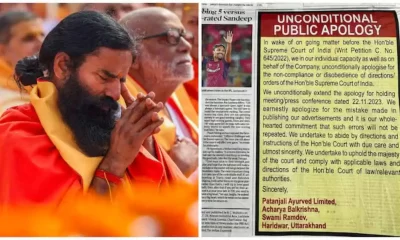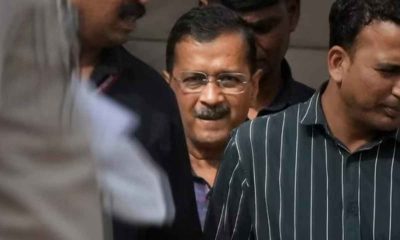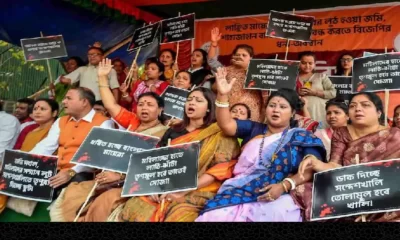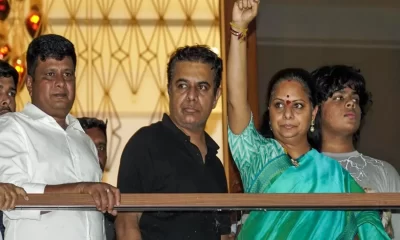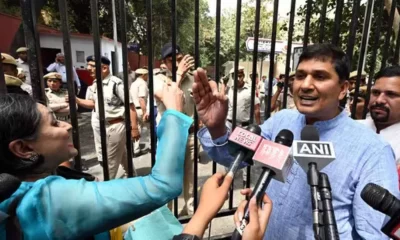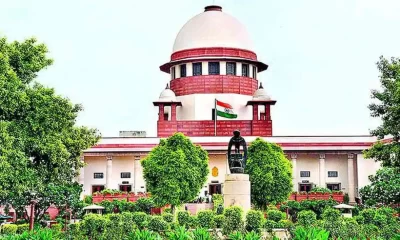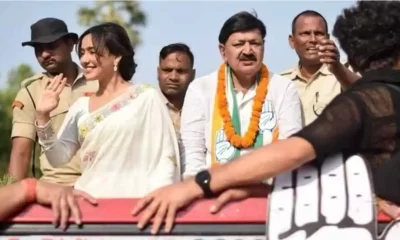India News
Supreme Court convicts ex interim CBI Director Nageswara Rao for contempt of court
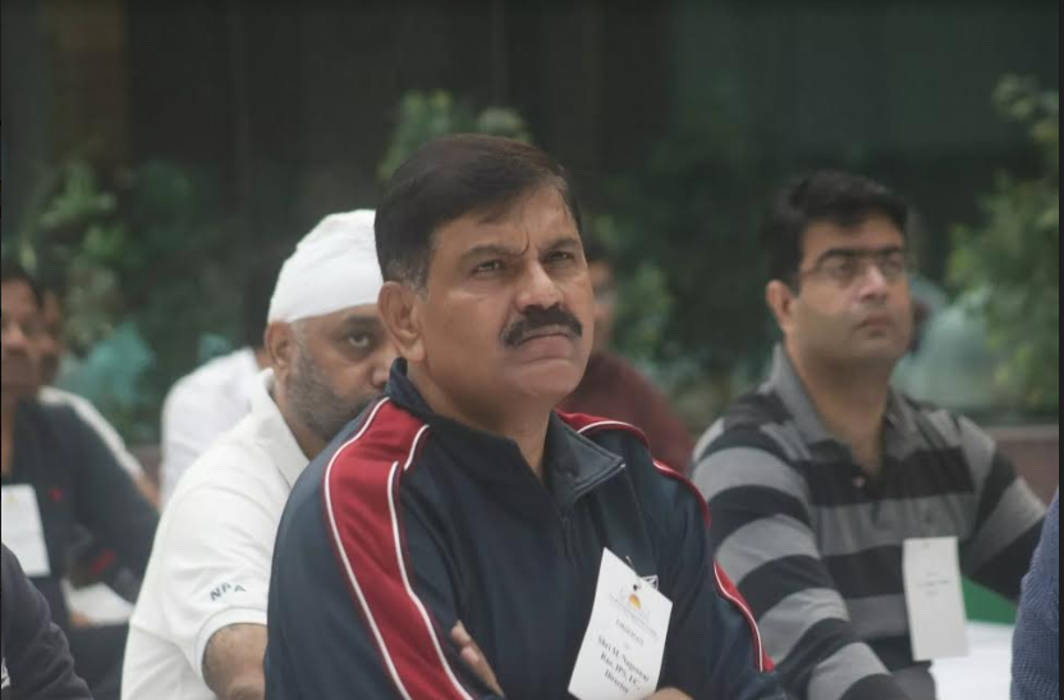
[vc_row][vc_column][vc_column_text]CBI’s former interim director M Nageswara Rao was today (Tuesday, Feb 12) held guilty of violating Supreme Court orders by transferring CBI joint director officer Arun Sharma who was the lead investigator in Muzaffarpur Shelter Home case.
The court also held Rao’s legal officer, CBI’s Director of Prosecution S Bhasuran, guilty of contempt.
“It is not an error. It is wilful disobedience,” a livid Chief Justice Ranjan Gogoi said. Rejecting their apology, the judges imposed a fine of Rs 1 lakh each on Nageswara Rao and Bhasuran and told them to sit in a corner of the courtroom till the court rises for the day.
The Supreme Court had placed an embargo on transfers of all CBI officers involved with the investigation into alleged sexual exploitation of inmates at the shelter home in Bihar’s Muzaffarpur district.
On February 7, while hearing a petition filed in the shelter home case, a Supreme Court bench led by Chief Justice Ranjan Gogoi and comprising Justices L Nageswara Rao and Sanjiv Khanna was incensed to discover that CBI joint director AK Sharma who was leading the probe had been transferred without prior approval of the court.
Fire breaks out at hotel Arpit Palace in Delhi’s Karol Bagh, 17 dead
The bench had then been informed that the transfer made by the Appointment Committee of the Cabinet (ACC), headed by Prime Minister Narendra Modi, on the advice of Rao, then interim CBI chief, while withholding information on the court-enforced embargo. The Chief Justice had pointedly told Attorney General KK Venugopal, appearing for Rao, that if a case of contempt of court was made out, the court would take the matter “very, very seriously.”
“You have played with our orders. God help you,” Chief Justice Ranjan Gogoi had said during the last hearing.
Yesterday, Rao had filed an “unconditional apology” with the Supreme Court, admitting to having violated its order by transferring Sharma but insisting that the action “came to be made not with any deliberate or disobedient intent” and that it was “never my intention to undermine the majesty of this Hon’ble Court, or to flout or circumvent any direction of this Hon’ble Court.”
“I sincerely realise my mistake and while tendering my unqualified and unconditional apology, I specially state I have not wilfully violated the order of this court as I cannot even dream of violating or circumventing order of this court,” Rao said in his affidavit.
As the court took up the contempt case on Tuesday, Attorney General Venugopal appeared before the bench and said that the former interim CBI director “admits his mistake”.
Priyanka Gandhi Vadra makes her formal public political debut with a roadshow
As arguments began, it became clear that the bench was unwilling to let Rao, who was present in the courtroom, off with just a simple apology. Chief Justice Gogoi asked the Attorney General, “what is it if not contempt” while pointing out that Sharma’s relieving order was passed without prior approval of the court and in violation of its express orders. The interim CBI chief’s affidavit was also “an admission of contempt”, he said.
As Venugopal continued to plead that Rao may be excused owing to his unconditional apology, the bench wondered why the interim CBI chief had “kept silent for two weeks” after Sharma’s transfer was effected and not sought “post facto approval” of the court for his decision.
“We are not inclined to accept his apology… we are of the view that he should be held guilty of contempt,” the Chief Justice said, even as Venugopal prayed for leniency. The Chief Justice then asked the Attorney General: “should we hear you on the point of sentence or him (Rao)”.
The Attorney General sought to protect Rao from being penalised by trying to turn the blame for violation of the court’s orders on “junior law officers” of the government. Venugopal argued that Rao had recommended to the ACC to transfer Sharma after getting due legal advice from them and that the junior lawyers officers of the Central Law Agency failed to inform the court and get its approval on the transfer.
Unimpressed, the Chief Justice said: “his (Rao’s) attitude is, I have done what I think is best (sic).”
“I have not invoked contempt powers and punished anyone in the last 20 years,” Chief Justice Gogoi said: “but there has to be a first time to maintain the integrity… this (Rao’s action) is brazen.”
The bench then made it clear that it was holding Rao as well as Bhasuran guilty of contempt and said it would hear the former interim CBI chief on the quantum of sentence to be awarded.
Grammys 2019: Complete list of winners
Attorney General Venugopal then pleaded that Rao be let off after being made to pay a fine. Accepting Venugopal’s plea, the court imposed a fine of Rs 1 lakh on Rao and legal officer Bhasuran, while directing the former interim CBI director to “sit in one corner” of the courtroom till the bench rises at the end of the day’s board.
However, the court, while holding Rao guilty of contempt, clarified that the transferred officer, AK Sharma, will not return to lead the shelter home probe and his transfer, made in violation of court orders, will not be rescinded.
Rao had taken over as interim CBI chief when the Centre and Central Vigilance Commission (CVC) divested Alok Verma of his responsibilities as the agency’s director on October 23. The very next day, Rao had issued transfer orders for a slew of officers known for their proximity to Verma and those who were, at the point, part of a Special Investigation Team (SIT) that was probing the CBI’s then special director Rakesh Asthana in graft cases.
Verma had rescinded these transfer orders during the two days that he returned as CBI director (on January 8 and 9) following his conditional reinstatement by the Supreme Court. On January 10, when Verma was summarily sacked as CBI director by the selection panel mandated to appoint the agency’s chief, Rao returned as interim chief and re-issued the transfer orders.
The transfers were controversial to begin with as they appeared to be a move aimed at scuttling the probe against Asthana. Some of these transfers are also under challenge in the Supreme Court.[/vc_column_text][/vc_column][/vc_row]
2024 Lok Sabha Elections
Bollywood actor Neha Sharma campaigns for her father Ajit Sharma in Bhagalpur, Bihar
The Bollywood actor posted a video on her Instagram handle which showed her journey through various districts of Bihar, including Kishanganj, Banka, Purnea and Katihar. She was dressed in a traditional salwar kameez and was seen greeting and encouraging the public to cast their votes.
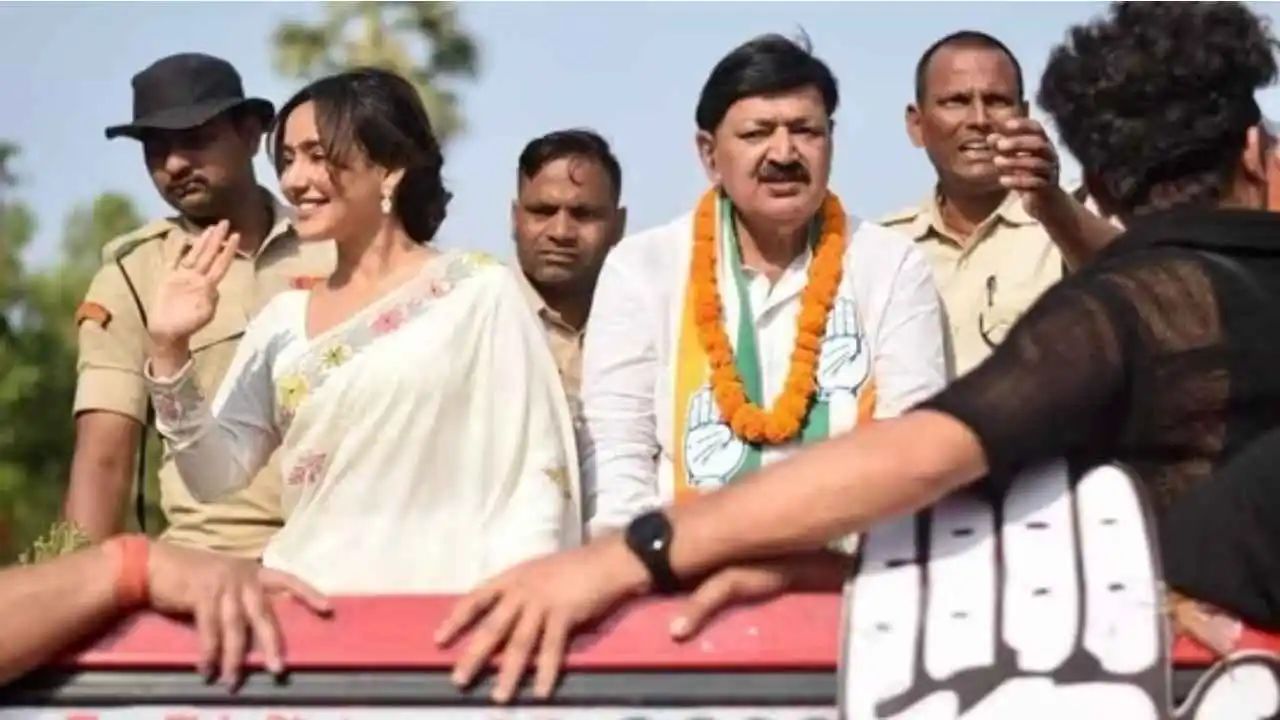
Bollywood actor Neha Sharma’s recent participation in a roadshow in Bihar has taken the internet by storm. Sharma, known for her roles in films like Tum Bin 2 and Crook, was seen supporting her father, Ajit Sharma, who is contesting from Bhagalpur Lok Sabha seat on a Congress ticket. The roadshow came amid speculations that the actor might enter politics. But, it is now clear that she was just campaigning for her father.
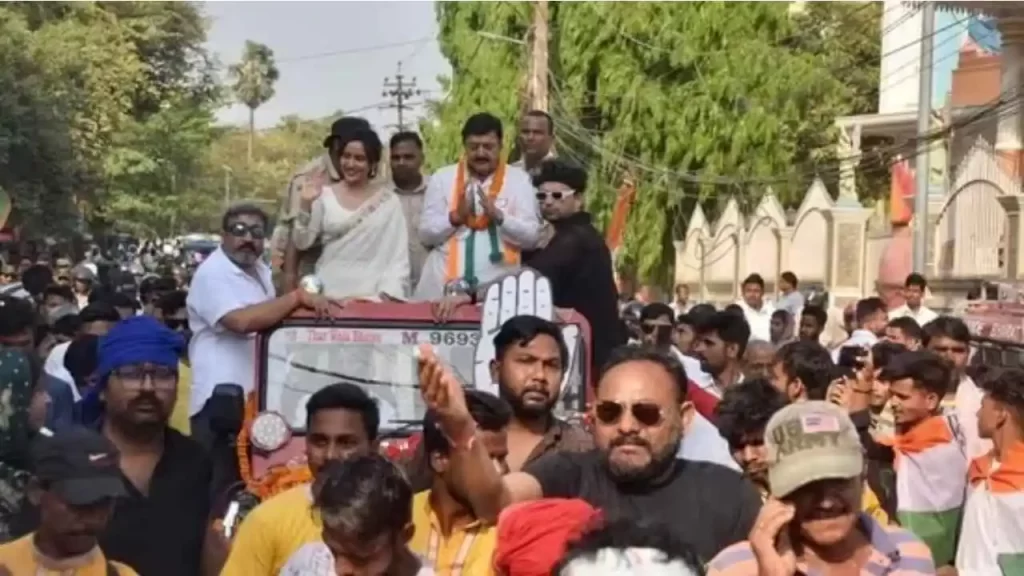
The Bollywood actor posted a video on her Instagram handle which showed her journey through various districts of Bihar, including Kishanganj, Banka, Purnea and Katihar. She was dressed in a traditional salwar kameez and was seen greeting and encouraging the public to cast their votes.
The actor received a warm reception and love from a large crowd in Pirpainti and Kahalgaon during her roadshow. She wrote on Instagram that it is said when someone gives one a place in their heart, then they live there forever. She said her heart is full of all the love and support she was receiving from the people. She thanked the people for the warm welcome she got in Pirpainti and Kahalgaon. Aapka pyar sar ankhon par.
Another video, circulating on social media showed the actor actively participating in her father’s election campaign in Bhagalpur. The election to the Bhagalpur Lok Sabha seat is set to take place in the 2nd phase on April 26. Ajit Sharma is representing the Congress and is up against JDU’s Ajay Kumar Mandal in this seat.
Earlier, there had been rumours and speculations that Neha Sharma might join politics. But many reports have clarified that she is not making her political debut yet. The Bollywood actor had been offered the opportunity to join politics by her father Ajjit Sharma but she is currently focusing on her acting career.
Education
Farmer’s son Nilkrishna Gajare Nirmalkumar from Maharashtra scores 100 NTA score in IIT-JEE Mains 2024
Nilkrishna Gajare’s father is a farmer and had to discontinue his own education after Class 12 as he faced financial difficulties. Gajare faced financial challenges growing up. However, his unwavering dedication and strategic approach to preparation set him apart from the crowd.
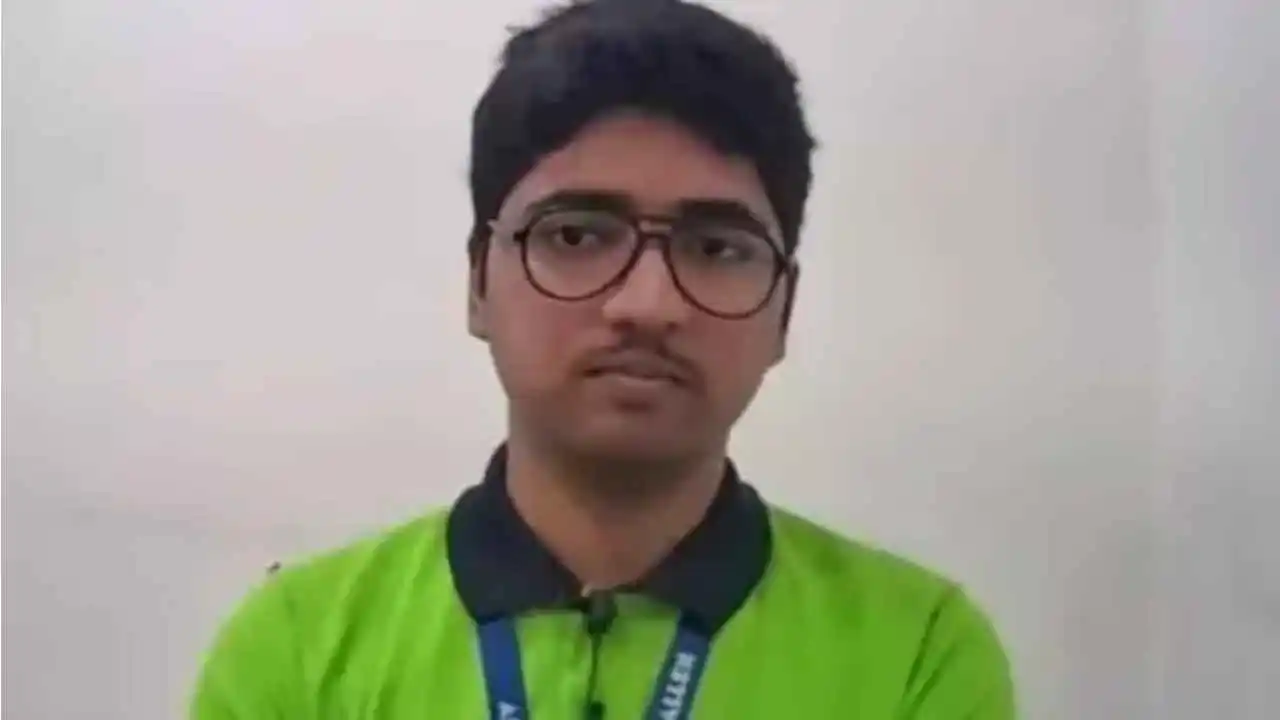
Nilkrishna Gajare, who hails from Maharashtra’s Washim, achieved an extraordinary feat by securing a perfect score of 100 in the JEE Main 2024 examination. His journey from humble beginnings to the pinnacle of success is a source of inspiration for many people.
Nilkrishna Gajare’s father is a farmer and had to discontinue his own education after Class 12 as he faced financial difficulties. Gajare faced financial challenges growing up. However, his unwavering dedication and strategic approach to preparation set him apart from the crowd, which resulted in his remarkable achievement of emerging as topper of one of India’s toughest Engineering entrance exams.
Nilkrishna Gajare had a strategic plan that helped him succeed in IIT-JEE 2024. According to Nilkrishna persistence is important and one should never stop trying until they understand a topic. He said being curious and asking questions are important traits of a good student. He said one should not be ashamed of asking questions.
Nilkrishna spent around 10-15 hours every day studying on his own for the JEE Main exam. He mentioned that he used his class notes for Physics and Physical Chemistry. For organic chemistry and inorganic chemistry, he relied on both notes and practice questions.
As for Mathematics, he believed that practicing regularly was the most important thing for him. Other interests of Nilkrishna include archery. He has participated at both state and national levels, and he finds joy in the sport. He said archery helps him understand the importance of focusing his attention on his goals. Nilkrishna likes watching movies and said they are a great source of enjoyment and relaxation.
He likes to watch a movie after exams and occasionally treats himself to one each week too. Gajare aims to keep up the pace for the JEE-Advanced exam and hopes to get into the IITs. He said he wants to secure admission in IIT-Bombay in the computer science branch.
2024 Lok Sabha Elections
Lok Sabha elections: Samajwadi Party chief Akhilesh Yadav files nomination from Kannauj
The Samajwadi Party has announced Akhilesh Yadav as its official candidate for the Kannauj Lok Sabha seat today
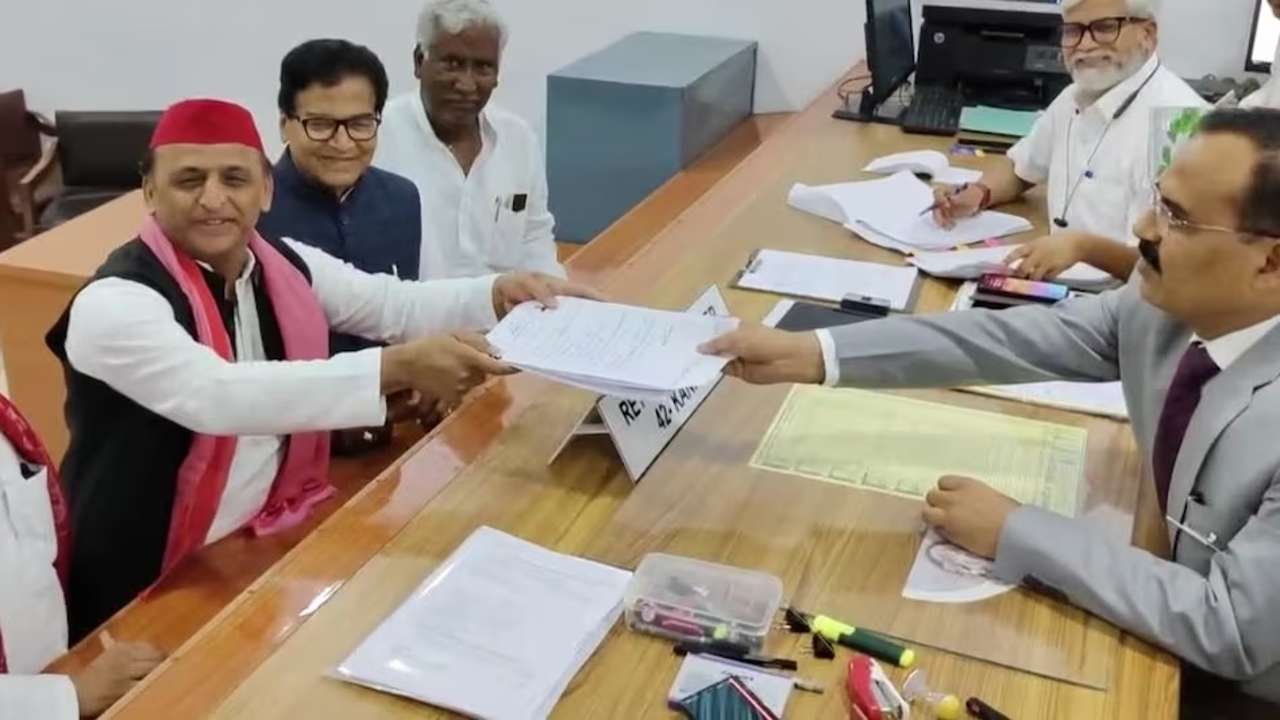
Samajwadi Party (SP) chief Akhilesh Yadav, submitted his nomination for the Kannauj Lok Sabha constituency ahead of tomorrow’s second round of voting. In front of Ram Gopal Yadav and other party leaders, the chief of the SP, who had previously contested the seat in 2000, 2004 and 2009, submitted the nomination.
Speaking with media, Ram Gopal Yadav said that SP would win the seat by a huge margin. The BJP candidate might lose his deposit in the seat, he said.
The Samajwadi Party has completely reversed its earlier plan to field former Mainpuri MP Tej Pratap Singh Yadav as their candidate, which is a significant political development.
Earlier, Akhilesh Yadav told reporters, people will find out when the nomination takes place, in reference to the speculations that he will contest for the seat. The historic victory of Kannauj is the subject of inquiry.
The former chief minister continued, the people have decided that the India bloc is coming as the future and the BJP will be history in this election.
Notably, elections for the Kannauj seat are scheduled for May 13, which would intensify the political drama that is now playing out in Uttar Pradesh. Previously regarded as the Samajwadi Party’s stronghold, the seat was lost by the party in the 2019 election when Subrat Pathak of the BJP won with a resounding victory.
The candidates competing for the following Uttar Pradesh seats will find out their destiny in the second round of voting, which is scheduled for tomorrow, Amroha, Meerut, Mathura, Baghpat, Aligarh, Ghaziabad, Gautam Buddh Nagar, and Bulandshahar.
Notably, two Bollywood celebrities running as BJP candidates in the second round are Hema Malini from Mathura and Arun Govil from Meerut. There are 91 contestants from UP competing in the second phase.
The seats in Gautam Buddha Nagar and Mathura are up for grabs, with a maximum of 15 applicants per seat. In Bulandshahr, six candidates are vying for the presidency. There are twelve contenders running in Amroha, eight in Meerut, seven in Baghpat, and fourteen in Ghaziabad and Aligarh.
1,67,77,198 votes will decide these candidates’ fates.
-

 India News5 hours ago
India News5 hours agoLandslide hits Arunachal Pradesh, highway linking Indo-China border affected
-
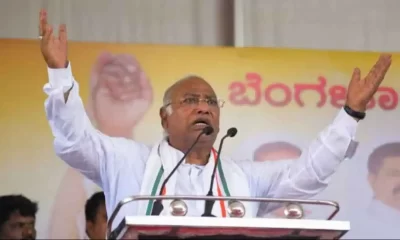
 2024 Lok Sabha Elections21 hours ago
2024 Lok Sabha Elections21 hours agoMallikarjun Kharge vows to continue politics till his last breath to defeat BJP
-

 Entertainment23 hours ago
Entertainment23 hours agoMadhuri Dixit, Karisma Kapoor recreate Dil To Pagal Hai dance battle on Dance Deewane
-
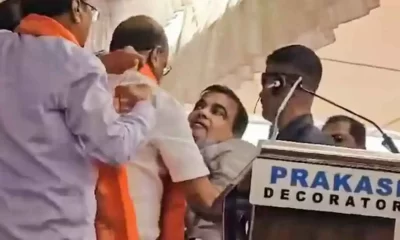
 2024 Lok Sabha Elections22 hours ago
2024 Lok Sabha Elections22 hours agoNitin Gadkari says he’s better now after collapsing at election rally in Maharashtra’s Yavatmal
-

 Education3 hours ago
Education3 hours agoFarmer’s son Nilkrishna Gajare Nirmalkumar from Maharashtra scores 100 NTA score in IIT-JEE Mains 2024
-
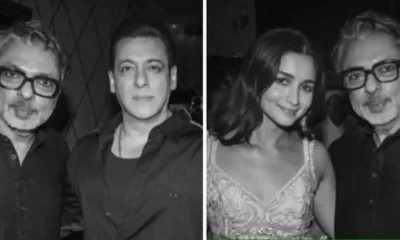
 Entertainment4 hours ago
Entertainment4 hours agoBollywood stars Salman Khan, Alia Bhatt, Rekha, Sonakshi Sinha, Aditi Rao Hydari attend Sanjay Leela Bhansali’s Heeramandi premiere
-

 India News5 hours ago
India News5 hours agoTamannaah Bhatia summoned in illegal IPL streaming app case, to appear before cyber cell on April 29
-

 Cricket news5 hours ago
Cricket news5 hours agoIPL 2024: Rishabh Pant, Axar Patel score half centuries as Delhi Capitals beat Gujarat Titans by 4 runs

